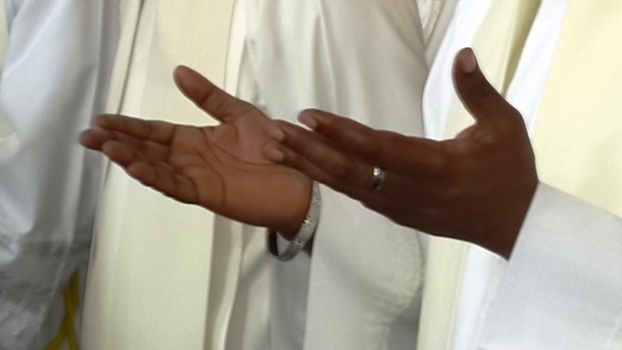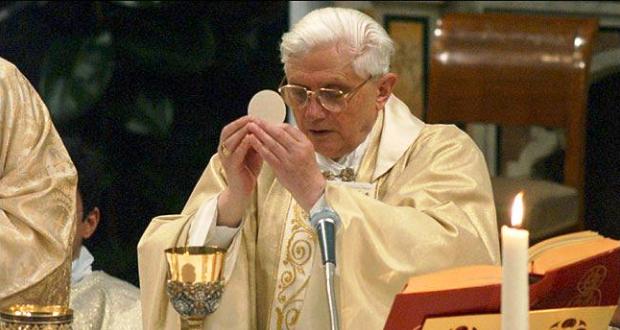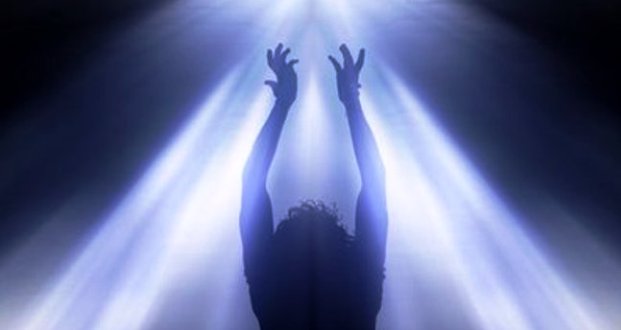The Holy Spirit Makes The Catholic Church A Living Breathing Reality

(By Fr. Dexter Brereton)
[simpleazon-image align=”left” asin=”0553419536″ locale=”us” height=”375″ src=”http://ecx.images-amazon.com/images/I/41B9LSHqYsL.jpg” width=”247″]Driving through Port of Spain recently I saw a car with the bumper sticker “SELF MADE”. I wondered at this sign which in many ways is typical of the spirit of many of the people of our age; then I thought of what the bible would say about that. In the bible, the word Spirit conveys an important concept that tells us that we, as human beings, are anything but self made our very life, every moment of existence is a gift of God. We read in the book of Genesis chapter 2 that God formed man out of the dust of the earth, then “blew into his nostrils the breath of life and so man became a living being.” (Gen 2: 7) In fact it is the teaching of all of the Old Testament that the “breath” or “spirit” of God is the source of both physical and spiritual life for humanity. Looking at the New Testament we can say that just as the breath of life from God animates every individual man, woman and child, so too, the breath of the Spirit makes the Church a living, breathing reality.
In this Sunday’s Gospel we read from Jesus’ farewell address to his disciples just before he gave himself over to death. Here, Jesus promises the disciples another “advocate” – a name which means “defense counsel” or “consoler.” He also calls this Advocate the “Spirit of Truth who issues from the Father.” Reading this portion of John’s Gospel we quickly notice that though the Old Testament speaks of the Holy Spirit as a powerful but impersonal “force” from God, here on the lips of Jesus, the Spirit is spoken of as a person. He is a person to whom we can relate and on whom we can call for help. Jesus says further: “I still have many things to say to you but they would be too much for you now. But when the Spirit of truth comes, he will lead you to the complete truth.”
- First spoken to his 12 apostles, Jesus’ words evoke the painstakingly slow journey that the church, as a historical community makes towards the “complete” or “fullness of” truth. These words of Jesus speaks of our very slow growth in our understanding of Jesus Christ and his message. The Church, like the human beings of which she is made up often struggles as she is “led into the complete truth.” For example, at one time the Church seemed to lend qualified support to slavery and it was only with the Second Vatican Council in the 1960’s that the church embraced the principle that one human being should not become the property of another.
- Second, as a boy growing up, Capital punishment was seen as a legitimate part of the responsibilities of the State. In our contemporary period, the practice has been all but outlawed in the Catechism of the Catholic Church.
All these developments are particular manifestations of the growth and expansion of what Catholic theology refers to as “Tradition.” For Catholics Tradition is some unchanging reality set in stone. By tradition we refer to that conscious process by which the Church through her teaching, example, study and prayer hands over to successive generations all that she herself is and all that she believes. According to the Vatican II Constitution on Divine Revelation: “This tradition that comes from the apostles makes progress in the church with the help of the Holy Spirit. There is growth in insight into the realities and words that are passed on.”
As I write, the people of the Republic of Ireland just voted for the legalization of so-called same-sex marriages. In the opinion of some, this will signal the loss of social clout of the Irish Roman Catholic Church, previously rocked by years of scandal. The situation of so many men and women who believe themselves to be experiencing a ‘same-sex’ attraction is an important challenge of our times. If we are truly followers of Jesus the welcome and integration of these sons and daughters of God has to be a major priority for us. It is a challenge which we must joyfully accept from the Lord as he continues to “lead us to the complete truth”. Allowing ourselves in this matter, to be “led to the complete truth” does not mean giving up our central convictions about the nature of the human family. We must hold on as Catholics to the truth and wisdom of our own experience and that of our ancestors in the faith and seek creative ways of engaging the society on this issue – making sure not to separate what is essential to Jesus’ message from what is temporary and changeable.






